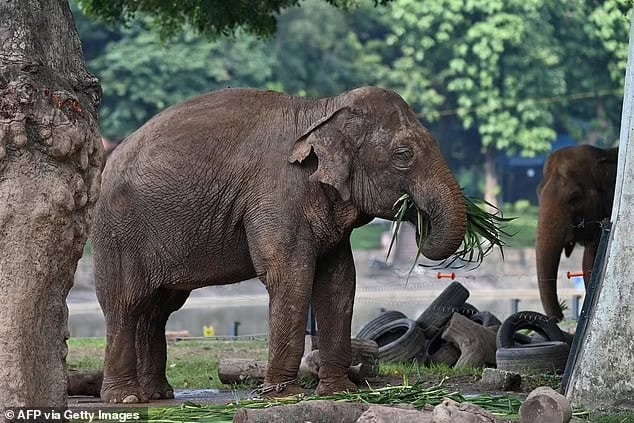The prolonged captivity of two elderly elephants at a public zoo in Hanoi, Vietnam, has sparked public outrage and calls for their release.
Animal rights groups are urging that Thai and Banang, two female elephants currently kept in chains, be relocated to a national park where they can roam freely.
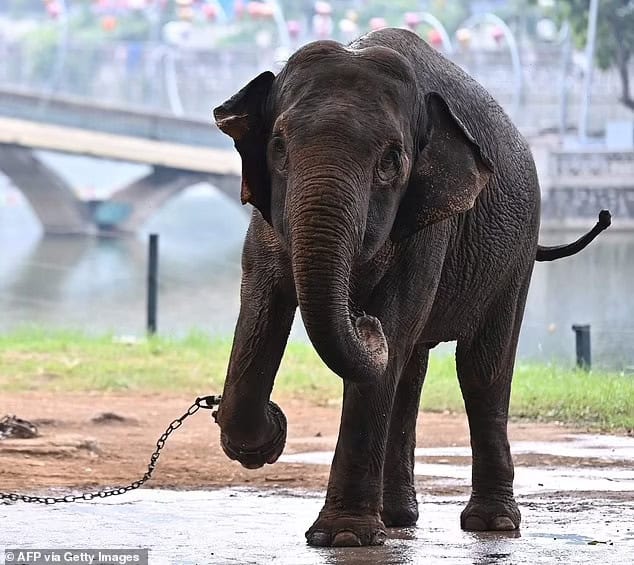
The elephants, whose legs are bound with iron chains, have drawn significant attention, with nearly 70,000 people signing an online petition demanding their freedom.
Advocacy groups argue that Thais and Banangs, confined for over a decade, deserve a chance to live in their natural environment.
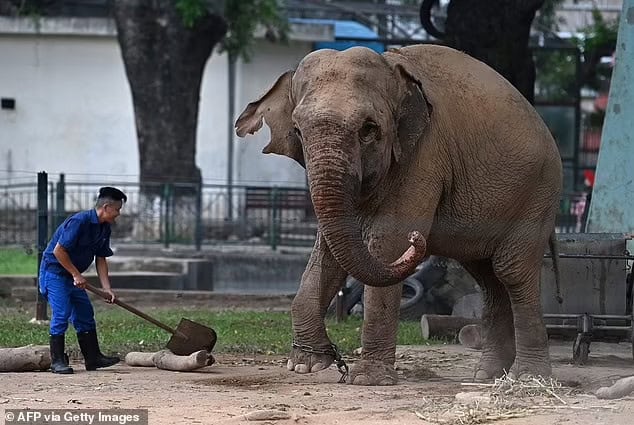
Recent images show the elephants in chains while zookeepers feed them grass and sugarcane. A zoo staff member who spoke anonymously said the elephants were chained due to safety concerns after the zoo’s electric fence was damaged.
The staff member explained that Thai and Banang were brought to the zoo from different regions of Vietnam, with one arriving in 2010 and the other in 2014.
They added that the animals receive regular care, including three meals a day, and that the chains prevented them from fighting due to their unfamiliarity.
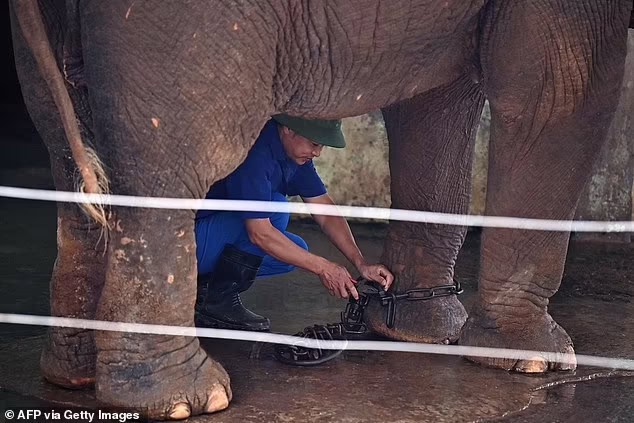
However, Animals Asia, a prominent animal welfare organization, has written to local authorities, requesting that the elephants be transferred to Yok Don National Park, located in Vietnam’s central highlands.
In the letter, the group expressed concern that the elephants’ health would deteriorate if they continued to live in chains.
David Neale, director of animal welfare at Animals Asia, emphasized that the elephants are likely experiencing frustration from being unable to engage in their natural behaviors. He added that Yok Don National Park offers the necessary conditions for the elephants to live healthily and happily.
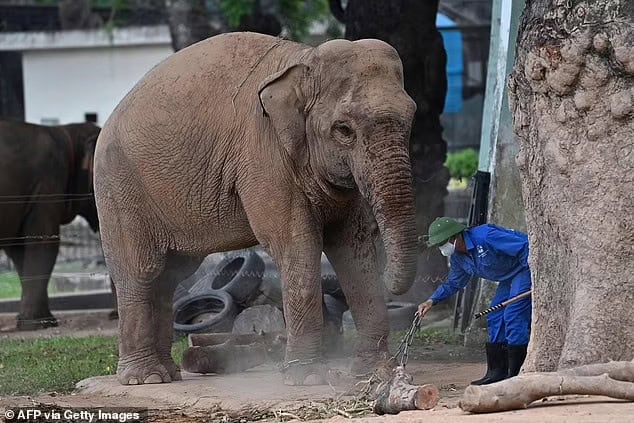
Vietnam Animal Eyes, another advocacy group, launched the petition to free the elephants earlier this month, adding to the growing movement calling for their release.
However, Le Si Dung, the director of the Hanoi Zoo, has dismissed the campaign as unrealistic. Speaking to state media, Mr. Dung argued that the elephants, estimated to be between 60 and 70, would not survive in the wild after so many years in captivity. He explained that the animals lack the skills to forage for food and protect themselves.
Despite the zoo’s stance, many animal lovers continue to criticize the conditions at the facility. Social media user Thanh Nguyen expressed outrage after visiting the zoo, describing it as “like a jail” and vowing never to return.
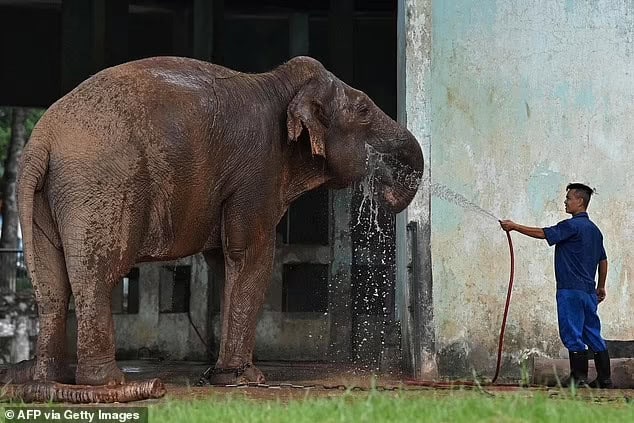
The plight of elephants in Vietnam is part of a broader conservation concern. The country’s wild elephant population has plummeted from approximately 2,000 in 1980 to around 100 in recent years.
According to environmental groups, the number of domesticated elephants has also sharply declined, from 600 in 1980 to just 165 today.
The campaign to free Thai and Banang has ignited discussions on animal welfare, highlighting the delicate balance between protecting endangered species and providing humane care in captivity.
